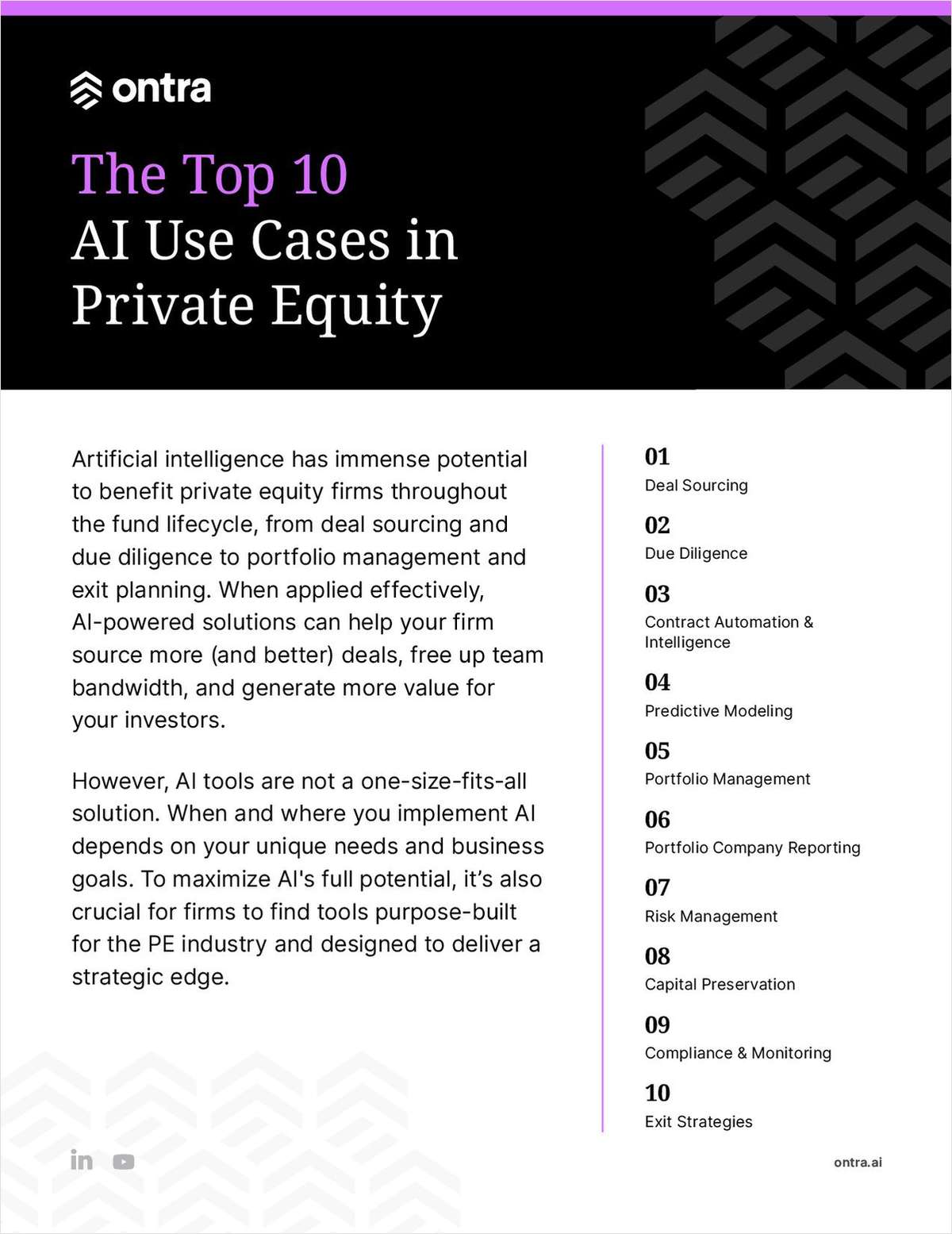Platform Diving: How to Make Your Cloud Computing a Perfect 10
Modern cloud services can provide value for law firm or corporate legal department needs in some unexpected places if you know where to look.
May 30, 2018 at 11:30 AM
4 minute read
The original version of this story was published on Legal Tech News

Platform diving was huge in the mid-80's, when arguably the greatest diver in history, Greg Louganis, wowed the world at the Los Angeles and Seoul Olympics with his graceful and athletic eye-pleasing endeavors.
And now, today, a new form of platform diving is prevalent in the legal technology field. That is the concept of “diving” into the suite of services offered by the Amazon Web Services (AWS) and Google Cloud platform to meet emerging legal needs.
We technologists all know about using these types of platforms for storage. It's cheap and efficient, but that's old hat. And we all see in trade journals and commercials some of the high-profile offerings in this space, things like Internet of Things and enterprise application support. But what about using these services for a legal specific need such as a law firm or corporate legal department document management needs? Can that be done?
The answer is—sure it can! AWS offers a document management product well integrated with S3 storage named WorkDocs. Google Drive counters with an add-on app, Powertools for Google Drive. Both services, which offer collaborative file sharing with strong administrative controls and editing capabilities, are just about as impressive as Louganis finishing off a back 2.5 somersaults in the pike position with a perfect no-splash landing.
What's so great about them, you might ask? Well, for starters, these systems balance the creativity, modern interface and functionality offered by a start-up. To cite a few examples, Powertools allows end users to add metadata to documents over and above standard Google Drive folders, a very nice feature which allows a legal user to track whether a document is a pleading, interrogatory, expert witness report, etc. Providing the legal-centric functionality within the ultra-secure environment of a top tier technology services provider is a huge plus.
Both WorkDocs and Powertools also offer comprehensive workflow features and a variety of security controls to maintain appropriate document access. Full-text indexing is in play as well. And if a law firm happens to already be using a cloud platform service like Amazon S3 or Glacier for typical high-volume data retention needs, going with a service like WorkDocs means that's one fewer vendor you need to manage for a law firm's IT shop. In a world where every provider needs to be screened for compliance in areas like HIPAA (Health Insurance Portability and Accountability Act of 1996) and GDPR (General Data Protection Regulation), that is not a trivial consideration.
And, of course, some of the most compelling reasons to use cloud computing platforms—turnkey functionality, redundancy and exceptionally attractive subscription-based pricing—are a huge part of the mix with each of these DMS (document management system) options. We must never forget that despite the need to provide exceptional technology, budgetary considerations are equally important and anytime you find a strategy to solve a problem at a below-market cost, you need to jump on that!
Over time, I've found myself gravitating to the innovative and constantly improving unique product offerings in the cloud computing world. Core providers like Microsoft, AWS and Google are constantly looking to push the envelope to offer creative products to better address, at lower price points, many different types of legal technology needs in areas like storage, document management, domain services, remote access and off-the-shelf applications. Plus, one can feel confident they have solid approaches for issues like business continuity, compliance and couple that with deep bench strength throughout their service organizations.
Document management is, of course, just one example of taking advantage of cloud platform technologies within the legal world. Citrix-like options for remote access and working environments, the creation of lower-cost redundancy for servers and the presence of office suite-like functionality are just a few of the many other examples. And you'd probably be surprised, there are more than a few e-discovery software providers whose products are deeply entrenched in cloud platforms as well. That's a big reason why many vendors are ultra-scalable and have the ability to respond to large project requests in a short period of time. It's a heck of a lot easier to “spin up” another environment than it is to buy, install and configure new hardware. And cheaper!
I invite you to take the plunge and dive right in as well. There's a tremendous amount of quality and value in the cloud computing pool!
Kenneth Jones is Chief Technologist of Tanenbaum Keale LLP, a boutique litigation law firm and Chief Operating Officer of the Xerdict Group, a SaaS legal collaboration software company. Xerdict is a wholly owned subsidiary of Tanenbaum Keale.
This content has been archived. It is available through our partners, LexisNexis® and Bloomberg Law.
To view this content, please continue to their sites.
Not a Lexis Subscriber?
Subscribe Now
Not a Bloomberg Law Subscriber?
Subscribe Now
NOT FOR REPRINT
© 2024 ALM Global, LLC, All Rights Reserved. Request academic re-use from www.copyright.com. All other uses, submit a request to [email protected]. For more information visit Asset & Logo Licensing.
You Might Like
View All
Legaltech Rundown: Judge Delays Thomson Reuters v. ROSS Trial, Harvey Updates Assistant and More
6 minute read
Spun Off From Deloitte, Moonlit Launches Legal Research Platform for EU Case Law

Lexis Announces New Personalized Legal AI Assistant Protégé
Trending Stories
- 1The Law Firm Disrupted: Playing the Talent Game to Win
- 2A&O Shearman Adopts 3-Level Lockstep Pay Model Amid Shift to All-Equity Partnership
- 3Preparing Your Law Firm for 2025: Smart Ways to Embrace AI & Other Technologies
- 4BD Settles Thousands of Bard Hernia Mesh Lawsuits
- 5A RICO Surge Is Underway: Here's How the Allstate Push Might Play Out
Featured Firms
Law Offices of Gary Martin Hays & Associates, P.C.
(470) 294-1674
Law Offices of Mark E. Salomone
(857) 444-6468
Smith & Hassler
(713) 739-1250









